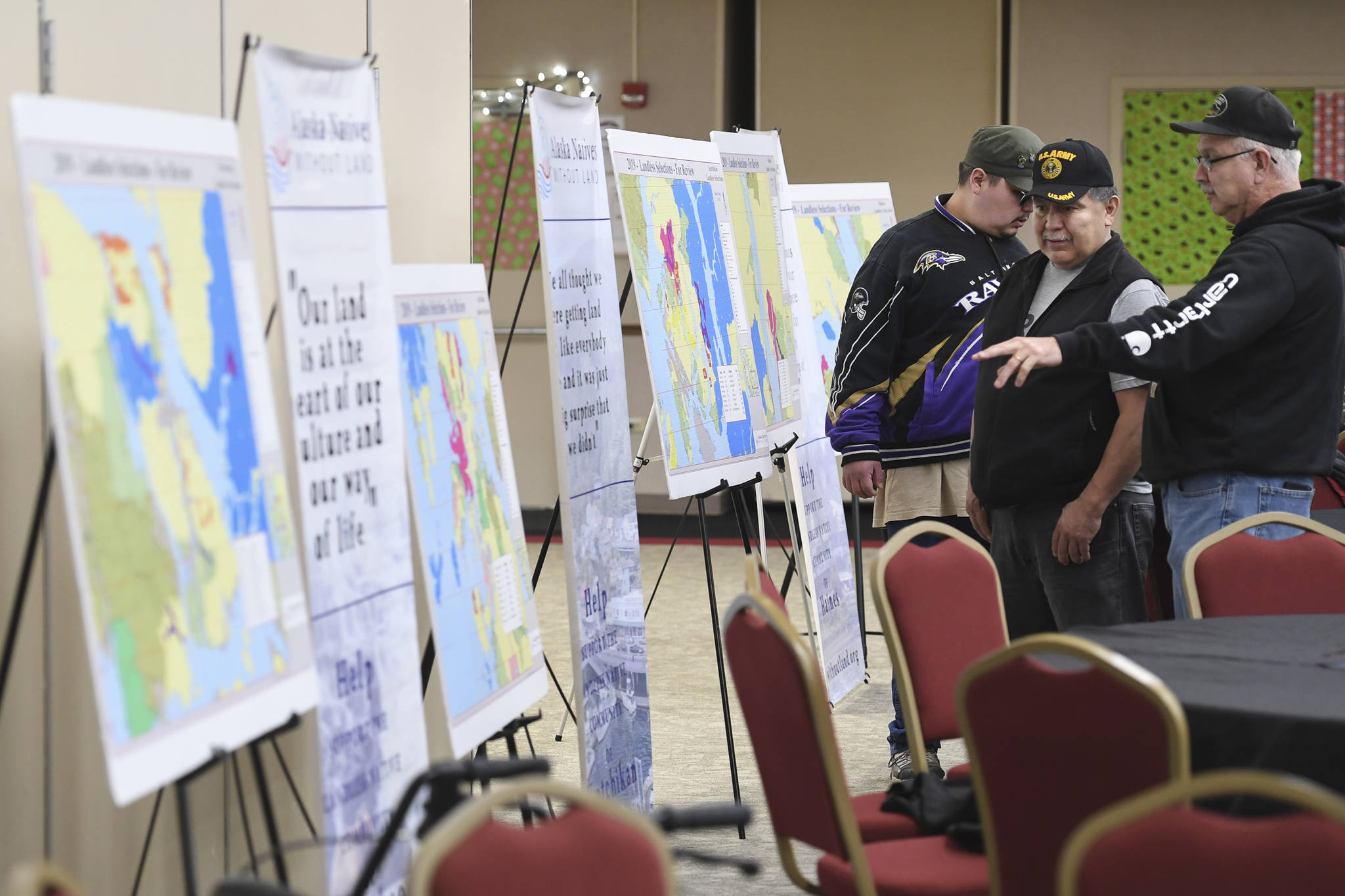A Juneau-based organization is pushing for changes to a federal settlement it says is decades overdue.
Alaska Natives Without Land, an advocacy group that is supported by Sealaska regional Native corporation, wants corporations and land for five Southeast communities — Haines, Ketchikan, Petersburg, Tenakee Springs and Wrangell — that were left out of the Alaska Native Claims Settlement Act.
ANCSA, which was passed in December 1971, led to the creation of Alaska Native regional, urban and village corporations and transferred 44 million acres to those corporations. Some tribal communities were excluded from forming village corporations in the ’70s.
“No one knew that Petersburg would be left out — that we’d be called landless,” said Cecilia Tavoliero, President for Southeast Alaska Landless Corporation, during a presentation.
Todd Antioquia, campaign and volunteer coordinator for Alaska Natives Without Land, said that omission never should have happened.
“It’s been 48 years since the passage of ANCSA,” Antioquia said in an interview before a community meeting held Saturday. “Every day, the inequity mounts.”
Any change to ANCSA would require an act of congress since the settlement was a federal act, and an event held Saturday was meant to build support for the cause and shed light on the specifics of what Alaska Natives Without Land hopes to accomplish.
“We want to rally support,” Antioquia said. “We want to build awareness of why it’s so important.
Antioquia said the proposed amendment to ANCSA would affect 4,400 enrolled shareholders in landless communities. Since the passage of ANCSA, Antioquia said 48 % of registered landless shareholders have died.
During an event held at Elizabeth Peratrovich Hall, Antioquia, Tavoliero, Sealaska board member Nicole Hallingstad and Sealaska Vice President for policy and legal affairs Jaeleen Kookesh outlined some specifics of what they’re hoping to accomplish. Sealaska Board Chair Joe Nelson also spoke at the event.
That includes allotting 23,040 acres to each of the five communities and creating five urban corporations.
Hallingstad said that acreage would be about .6% of the Tongass National Forest that could be used as the communities see fit. Proposed land selections are mapped out on the Alaska Natives Without Land website, withoutland.org.
Antioquia said the land selections were determined with input from members of each community. What the land could be used for is up to each community.
“Each community has the inherent right to decide,” Hallingstad said.
While that includes potential logging, she said existing corporations have shown ecotourism, carbon credits and sustainable harvest can be workable ways to use land.
[How U.S. reached ‘rock bottom’ of American Indian law]
While the bill does not yet exist, Antioquia and Tavoliero said the concept that’s being pursued does not include a monetary component. Under ANCSA, Alaska Natives received $962 million.
This is not the first time an ANCSA amendment has been attempted, Antioquia said. He added the concept has the backing of Alaska’s congressional delegation.
Alaska’s Republican Sens. Dan Sullivan and Lisa Murkowski co-sponsored the ANSCA Improvement Act of 2017, which would have authorized urban corporations for the five Southeast communities among other changes.
While past efforts have not gotten especially far, Antioquia said it’s inaccurate to consider previous attempts to be failures since they weren’t subject to a vote.
Antioquia said he is optimistic that this effort, which includes proposed land selection maps, will lead to a bill that results in changing ANCSA. He pointed out
People in attendance seemed to be curious about how the specifics of the proposal would play out, but generally in favor of the goals of the yet-unveiled bill.
“This is our land,” said Mary Marks, whose family comes from Haines. “It’s time thwt we stand and let it be known in Washington, D.C.”

